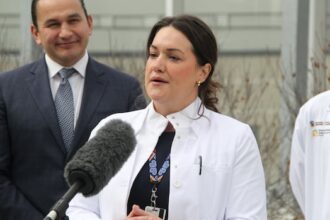In a timely response to growing mental health concerns among students, the Thames Valley District School Board (TVDSB) has unveiled a series of summer drop-in clinics designed to provide crucial support during the school break. This initiative, launching amid rising anxiety rates among Canadian youth, offers a lifeline to students and their caregivers when traditional school-based resources are typically unavailable.
The mental health clinics will operate on a drop-in basis throughout July and August at multiple locations across the region, including London, St. Thomas, and Woodstock. Each clinic provides access to professional mental health workers who can address immediate concerns, offer coping strategies, and connect families with additional community resources when necessary.
“Summer can be particularly challenging for many families,” explains Dr. Michelle Gilpin, TVDSB’s Mental Health Lead. “We recognize that mental health needs don’t take a vacation when school ends. These clinics ensure continuity of support during a critical time when routine disruptions can exacerbate existing conditions.”
According to recent data from Canada News, approximately one in five Canadian children and youth experience mental health challenges, with rates climbing steadily since the pandemic. The TVDSB initiative aims to address this concerning trend by providing accessible support options without lengthy waitlists or formal referral processes.
The clinics are designed to accommodate various needs, from anxiety and stress management to more complex emotional and behavioral concerns. Notably, the board has ensured that no appointment is necessary—families can simply arrive during operational hours to receive immediate assistance.
Parents have already begun to express appreciation for the program. “Having somewhere to turn during the summer months gives us peace of mind,” shares Emma Lawson, mother of a grade nine student. “My son’s anxiety tends to spike during transitions, and knowing professionals are available if needed makes a tremendous difference for our family.”
The CO24 News team has learned that each clinic will be staffed by qualified mental health professionals from both the school board and partner organizations. This collaborative approach ensures comprehensive support that addresses the diverse needs of the student population.
Beyond crisis intervention, the clinics also focus on preventative strategies, offering workshops and resources to help students build resilience and develop healthy coping mechanisms. Caregivers can receive guidance on supporting their children’s mental wellness at home—a crucial component for sustainable improvement.
The TVDSB has emphasized that all services are confidential and free of charge, removing potential barriers to access. Transportation assistance is also available for families facing mobility challenges, further demonstrating the board’s commitment to equitable mental health support.
As mental health continues to gain prominence in educational priorities across CO24 Politics, initiatives like the TVDSB summer clinics represent a promising evolution in how school boards approach student wellbeing beyond traditional academic calendars.
As communities navigate the complex landscape of youth mental health, one question remains particularly pertinent: Will this summer model of continuous support inspire year-round innovations in how we structure mental health services for our most vulnerable young people?

























